
The Free Press

Last Saturday, stunning news broke out of Israel: four hostages had been rescued by the Israel Defense Forces in a daring daylight operation in central Gaza. Noa Argamani, 26; Almog Meir Jan, 22; Andrey Kozlov, 27; and Shlomi Ziv, 41, were liberated after 245 days in captivity.
The first name, Noa Argamani, was one that many people recognized immediately. Everyone remembered the footage of Noa being kidnapped on the back of a motorcycle on October 7 from the Nova Music Festival, a look of terror on her face, reaching for help.
Eight months later, it was hard not to see the footage of Noa’s reunion with her father, crying in his arms, as anything short of a miracle.
But it wasn’t a miracle. It was the result of a complex and historic military operation that many are comparing to the raid on Entebbe in 1976.
Not that you would have known that from the headlines. One BBC article was headlined: “Noa Argamani released.” A CNN chyron said the same. A UN official posted: “Relieved that four hostages have been released.” It was as if Hamas just handed them back to Israel and that was that. Other headlines focused on the Palestinians killed during the rescue, without mention of who started the gunfire, how many Hamas militants were killed versus true innocents, or who held the hostages. And of course, they blindly quoted numbers given by the Hamas-run “Ministry of Health.”
Reading many of the headlines over the last few days—or the Twitter posts claiming that the hostage raid was some kind of decoy for the IDF to kill Palestinians—felt like nothing new from the last eight months: more distortions of reality, more spinning of words, more half-truths or outright lies.
The day after the news broke, thousands of protesters encircled the White House waving Palestinian flags and calling for the death of Zionists. “Hezbollah, kill another Zionist now.” “Stand with Hamas,” read one poster. Another sign read “LGBTQ—Let’s Go Bomb Tel Aviv Quickly.”
How did this come to be? How is it that progressives are openly siding with Iranian-backed terrorist groups and against the country trying to stop them? And why did so many react to this evil, not with horror or outrage, but a collective shrug?
Those are some of the questions Sheryl Sandberg has spent the past eight months asking.
As Sheryl watched the horrors of October 7 unfold, she was sure that everyone would rally against these unspeakable atrocities—particularly after the reports of sexual violence and rape committed by Hamas started coming in. When she saw that people did not, in fact, rise against it—and worse, when people began to deny that it even happened—she was stunned. Sheryl was particularly shocked that many of her would-be allies—prominent feminists and progressives in this country and around the world—stayed silent.
This led her to make a documentary about the sexual violence of October 7 called Screams Before Silence. Sheryl described the film as the most important work of her life, which is saying something considering her substantial résumé.
When people think of Sheryl Sandberg, they think of a girlboss, corporate feminism, and coastal politics—wearing a power suit and campaigning for Hillary Clinton. She is, in other words, a normal Democrat. A normal liberal.
But as major parts of the left side against Israel, and downplay or ignore or actually foment antisemitism, a lot of people who consider themselves normal liberals are asking themselves: What happened to liberalism?
The position that Sheryl finds herself in is relatable to many Americans, people who feel betwixt and between in a post–October 7 world where the very people they thought were their friends are proving themselves to be just the opposite.
On today’s episode of Honestly, Sheryl talks about this very fraught moment we are living in. She talks about her film, the silence from so many women’s organizations and feminists, the denialism, how antisemitism is thriving in America, her changing Jewish identity, whether she feels politically homeless, and much, much more.
Watch our conversation in full below, catch it on the Honestly feed wherever you get your podcasts, and scroll down for an edited transcript.
On making a film about the sexual violence of October 7:
Bari Weiss: When most people think about who you are, they think about a titan of Silicon Valley. They think about a woman who broke a lot of barriers. Maybe they think of you as the woman who wrote Lean In. But now you’ve also added something to that list: documentary filmmaker. Tell us about Screams Before Silence, and what led you to make it?
Sheryl Sandberg: I never thought I would do this, and I wish this didn’t have to be made. When October 7 happened, I was shocked. In the weeks that followed, people started coming out with what I thought was just clear evidence that this wasn’t just mass murder, but there was rape. Women found naked, bloodied; over and over, the stories were coming out. And what I then expected to happen is people to say, “Oh my God, rape is never supposed to be used as part of war.” And it just wasn’t happening.
So I helped organize a conference at the UN where we brought witnesses who stood there and cried and said, “Here’s what I saw with my own eyes.” And then I took those same witnesses to parliaments in Europe, and then we still were having some denial and a whole bunch of silence. And so then I got a call from Tom Nides [former U.S. ambassador to Israel], and he said, “There’s a group in Israel that wants to make a documentary. Will you go interview the people?” And I said yes right away. And my hope is that anyone who denies this, they have a chance to sit down and see with their own eyes. The people we interviewed—they were telling the same story of the same thing. And I think it’s really impossible to watch this and not believe this happened.
On the accounts of women in the film:
SS: This is hard and graphic stuff. Amit Soussana was held for 55 days. She was chained to a bed for weeks with a gun to her head, forced to commit a sexual act on her captor. And then he takes the gun away and asks, “Do you want food?” And she realizes in that moment, this is survival for me. This is not what she wants to be known for, but she knows that there are people still in captivity, and she knows they’ve been sexually assaulted as well. I find her so brave.
Maybe the most iconic video was Naama, who is the girl being dragged from one side of the car to the other. She’s in gray sweatpants. No shoes, and she’s bloodied right around her crotch. And I interviewed her mother, Ayelet, and asked her, “What was it like seeing that video?” And she said she can’t believe that anyone could do this to a young girl. And she doesn’t know what happened to her. We don’t know if she was raped. We don’t know if that’s blood. But people who have been released have said over and over, “I spoke to other hostages who are being sexually assaulted.”
BW: In the past few weeks, a new video [from October 7] came out of Naama along with four other girls around the age of 19 and 20, and one of the terrorists says, “These are the girls that can get pregnant.” We’re sitting here basically nine months since October 7. Is it possible that there are hostages who are right now sitting in Gaza about to give birth?
SS: Yes. I interviewed Agam [Goldstein], who was 18 years old when she was taken captive. The terrorists broke into their home. They shot her father. When her sister passed out, they shot her in the face in front of her. And then she and her mother are taken into captivity. She says that of all the hostages she saw, half of them were being sexually assaulted. So yes, it is very possible that we have people who are pregnant in captivity.
A few weeks ago I spoke on a panel with Denis Mukwege, who won the Nobel Peace Prize for his work on sexual violence and conflict. And he said the most stunning thing. He said, “Sexual violence is the most effective tool of war for two reasons.”
The first, he said, is that it’s just effective. You rape women and sometimes their husbands then don’t want to be with them. You tear apart society. They’re carrying the babies of their rapists. And then he paused, and he said something chilling. He said, “And it’s free.” It’s free. You don’t have to buy a bomb, a rocket, a gun. It’s free. So you can totally terrorize a nation. Someone said in our film, “When you rape a woman, you rape the nation.” You can terrorize a nation and a people for free. And I think that’s why this film means so much to me. That’s why I think there’s so much at stake. This is about Jewish women. This is about Jewish survival. This is about rape as a tool of war.
If we don’t find our common humanity to stand against this, if we can’t realize that politics are less important than this, we have so much to lose. That should terrify everyone. And unfortunately, right now it does not.
On the denialism:
BW: In the face of such overwhelming evidence, a pogrom that was put on livestream by terrorists, there are people living in the freedoms and comforts of the West who are denying it. And I just want to read a few examples to you. Max Blumenthal, a journalist, said that “A woman’s body found naked from the waist down was simply because women at festivals like to dress in skimpy attire.”
Another example, the prominent British commentator Owen Jones, said, “There’s no evidence of rape.” This is a guy with a million Twitter followers.
Briahna Joy Gray, who was Bernie Sanders’ press secretary in his 2020 campaign, said, “Zionists are asking that we believe the uncorroborated eyewitness account of men who describe alleged rape victims in odd, fetishistic terms. Shame on Israel for not seriously investigating claims of rape and collecting rape kits.” How do you understand the logic or the worldview that leads people to say things like that?
SS: I think there are two reasons. The first is that some of this has to be antisemitism. I told you I took these same witnesses to European parliaments. And there was a lunch that someone held. And this woman stood up and said, “I’m not Jewish, but I think there’s antisemitism happening right now because in my three decades of working at this, every time this happens anywhere in the world, all anyone ever asks is, ‘How can we stop it?’ And all of a sudden, for the first time ever, they’re saying, ‘Did this happen?’ ”
But I think there’s something else going on. Polarization is about people having a narrative and that narrative is overly simple, overly black and white, and they can only see the world through that narrative. If you believe that October 7 was resistance—and I want to be super clear, I don’t—all of a sudden when you hear there was rape, that does not fit into your model of resistance at all. You can say, “Wait a second, maybe I’m wrong or maybe it’s not this simple.” Or you can say, “This doesn’t fit into my narrative; therefore, it didn’t happen.” And that should scare all of us.
BW: I think polarization is a big issue. There is a worldview that’s taken hold on a large part of the left that insists that people’s identity determines whether or not we judge their actions as moral. And if a group that has been decided—in this case, Palestinians—that they are victims, then everything is permissible. And when it is decided that a group is the victimizer, nothing is permitted. And once you have that lens on the question of Gaza/Israel or Israel/Palestine, everything flows from that, and therefore Israel can be basically guilty of everything, and the Palestinians can be guilty of nothing.
SS: The same people who insisted that we believe women in other circumstances are now saying, “Did this happen?” And that’s deeply troubling. You have information coming at you that doesn’t fit your narrative. Then what do you do? Well, I think what we are teaching people to do is not talk to each other, not listen to each other, not have real debates.
It’s kind of shocking, but there are rules of war. No biological weapons, no nuclear weapons, etc. And until 30 years ago, rape was totally accepted. It was just part of war. And then it was feminist groups, progressive groups, human rights groups that said, after the mass rapes of the DRC [Democratic Republic of Congo], the former Yugoslavia/Bosnia—that said, “We’re not going to allow rape to be used as a tool of war.” And they started prosecuting it for the first time. Now we have a moment where we have to decide if we stand by that, or we let history backslide.
On the silence of progressive women and organizations:
BW: The title Screams Before Silence comes from a woman who hid for seven hours in a trailer at the Nova Music Festival, but there’s a meta level at which the title also works, which is that on October 7, the only Jewish state in the world had a primal scream. And then there was silence from the world. I can’t help but think about someone like Michelle Obama, who in 2014 campaigned to #BringBackOurGirls when Boko Haram, an Islamist group in Nigeria, stole 276 schoolgirls. And everyone in the world cared about those 276 girls because of the leadership of Michelle Obama. And everyone fell like dominoes to follow her moral leadership on that issue. Where is she and people like her in this moment?
SS: I think everyone should be screaming, “Bring back the hostages.” But do you know that about half of those girls are still not back? And I actually haven’t heard anyone talking about it for a while. I remember when Afghanistan happened. Some girls are committing suicide, I think, regularly now. Can you imagine everything being taken away from you because you’re a girl? And I don’t feel like we’re talking about that. I do think it’s very hard to stay focused on these issues, and I really think we need more focus, and we need many more voices on this one.
BW: Here’s what some of the most important feminist organizations in the country have said since October 7. The National Organization for Women only made a statement two months after the fact—it did not mention Hamas. UN Women—a group whose mission is to create an environment in which every woman and girl can exercise their human rights—waited 55 days. The International Committee of the Red Cross has said nothing. There has been silence or—and I don’t know which is worse—this weasel word salad in which they cannot say who has done the bad, evil thing, from so many organizations that, I think pre–October 7, many people like us would have supported. You are a very powerful woman. How does it change your calculation about whether or not to support organizations like this going forward?
SS: It’s changed me immeasurably. None of that is acceptable. I do think there’s a hierarchy. I think denial is the worst. I think silence is the next worst. I think weaselly words are the next worst. None of it’s okay. Particularly UN Women. I think what they’ve done has been completely unforgivable. But I’ll tell you how it’s changed me. I’m sitting here. I wouldn’t have made a documentary. Before this, I worked on women in leadership, and I still think it matters. But I never thought I’d be speaking out on antisemitism. I never thought I’d give speeches on antisemitism. I never thought I’d go to Israel and make documentaries, just trying to prove something we shouldn’t have to prove. So it’s definitely changed my focus.
On how this has changed her politics:
BW: I think a lot of women feel politically homeless right now. They feel like there’s one group of people who I detest on their domestic policy, but I really like what they’re saying in terms of the women that are being held hostage right now by Hamas. And there’s another group of people who are completely silent on this foreign issue, but that I really like on issues like abortion. Do you feel that way yourself?
SS: Yes. But that’s where we need to break down this black-and-white “I’m in this group or that group.” No, I get to sit here, and I get to decide what I believe. And we need to teach our kids and our college students that they get to decide what they believe.
BW: But in the end, they have to vote for someone, right? This is the problem. They go into their polling place and they’re like, “Shit, I hate half these people on half the things, and I hate these other people on the other half.” And it has that quality of, just hold your nose and ignore half of what you care about.
SS: Then they should run. I’m serious. We need people who can find their way into the actual beliefs. But the other thing we need is real dialogue on the hard issues.
BW: You’ve been a Democrat your whole life. Obviously, your worldview has sort of shifted a little bit. Will you be donating to Biden this cycle and supporting Biden?
SS: I did donate and I do support.
On how the education system in America fuels antisemitism:
BW: If you were a senior-level cabinet official in the Biden administration, what would you be doing differently to educate people in this country and combat antisemitism and basically its most prominent current iteration, which is anti-Zionism?
SS: I wish it could be done at the federal level. I think educational curriculum—and I’m trying to learn about this—is very much a state issue and a local issue. I think we need to go state by state, local by local, and change education. I have children of various ages, and my child who’s elementary school–age and one of my children who is high school–age have both said—one in more sophisticated language than the other—that they’re not really taught much that’s positive about the United States in their school. They’re just not taught that. There’s a lot in our country’s history to be upset about—we should be teaching how horrible slavery was, how horrible racism is, how those two are tied—but there’s some positive things too. My great-grandparents fled antisemitism, fled the Holocaust, and got back here. They came with nothing. They had huge opportunities here. I think our educational system on this is completely broken. And it is particularly broken how we talk about the Middle East and Judaism and Zionism, and it needs to get fixed.
BW: How do you make sense of the fact that some of the most educated, pedigreed young people in our country and around the West are celebrating the groups that carried this out? And then, of course, schools like the ones we graduated from with people chanting, “resistance is justified,” chanting for global intifada. Steelman their position. What do you think they are shouting for when they’re shouting those slogans?
SS: Well, I’m gonna disagree with something you just said. They’re not educated. You see these videos going around, and they’re marching and screaming “from the river to the sea.” And they’re asked, “what river?” and “what sea?” And they have no idea. Well, you and I both know that the entire country is between the river and the sea. And if you say “from the river to the sea,” that means no Jews, you are pushing Jews into the sea. That is death.
“Globalize the intifada.” The Second Intifada was violent attacks on Jews. Globalize means violent attacks on people who support Israel in and out of Israel. That’s not okay. So let’s start with they’re not educated, and I think they need to be educated. Part of what has to happen here is people need to go back to the history and actually understand, why is Israel so important to Jews? I saw a recent poll that said that 80 percent of American Jews say that Israel is an important part of who they are. Why? Let’s go back to why. Because we were raised by parents and grandparents who told us that they might one day try to push us into the sea, that they might one day come after us. And the state of Israel is that place that Jews are going to be able to go. And that remains really important to Jews. And the irony and what makes this situation even so much worse is it’s never been more important.
If you had asked me on October 6, would I ever think that I would need to hide? I would have laughed; I would have thought you were crazy. I thought antisemitism was a relic.
A month after October 7, I was on a walk with a really close friend who’s not Jewish, and I said, “Are you going to hide me?” I literally said that to a good friend.
This is real. This is real for us. And the problem is that even the most well-meaning people don’t see the antisemitism in front of them.
I have a friend who’s in an exec ed program at a major university, and it’s a cohort of older people who are going back to college, and they are paired with younger people in college, and they go to class together. So she told me recently that one of the things her cohort does together is yoga. They do it at Hillel. It’s not sponsored by Jews. It’s not Jewish yoga. It’s just yoga in the Hillel building. And a few weeks ago, four of the undergraduates said they wouldn’t go anymore because it was at Hillel. And I looked at her and I said, “Well, then what happened?” She said, “Well, we moved yoga.”
And I said, “Really? You moved yoga? How about, ‘That’s unacceptable?’ ” If you said you weren’t going into the building of any other group based on religion or identity, we would sit you down and be like, that’s bigoted. That’s hate.
So I feel like for the first time in my life, we have all of this education to do on what hate is, and why and how it’s not okay being directed at the Jews—or anyone.
BW: Has it changed the kinds of organizations that you will give your money toward? I saw that you gave money to Harvard. Would you still give money to Harvard today?
SS: It’s definitely changed how I think about where I give my resources and most importantly, my time.
I was wrong [about antisemitism]. I missed this, and it’s definitely become a much bigger part of my life’s work.
BW: I think there’s a big debate going on about so many of our institutions, which have become inverted versions of themselves. And that debate is about whether or not the right way to fix them is to reform them from within, or to deport yourself and start something new. I think about it as the radical versus the reformer. Where do you think you sit, and what do you think the right approach should be?
SS: When I look back at writing Lean In, one of the main criticisms was that I was telling women how to succeed within the capitalist system, not blow it all up. And so I thought a lot about that. I still believe it’s within the system. Capitalism has a lot of problems. No one should be homeless in a wealthy country. We owe people better than that. But would I blow up capitalism? Not until someone tells me what’s replacing it. Do I think there needs to be capitalism with more assistance, more equal opportunity? Absolutely. But I don’t see the socialist system that’s going to work. And so I’ve long been either accused or applauded for being someone who works to change the system from within.
To support more vital conversation, become a Free Press subscriber today:

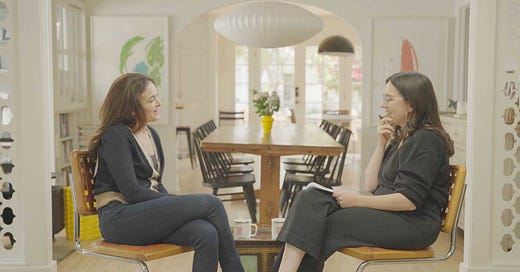



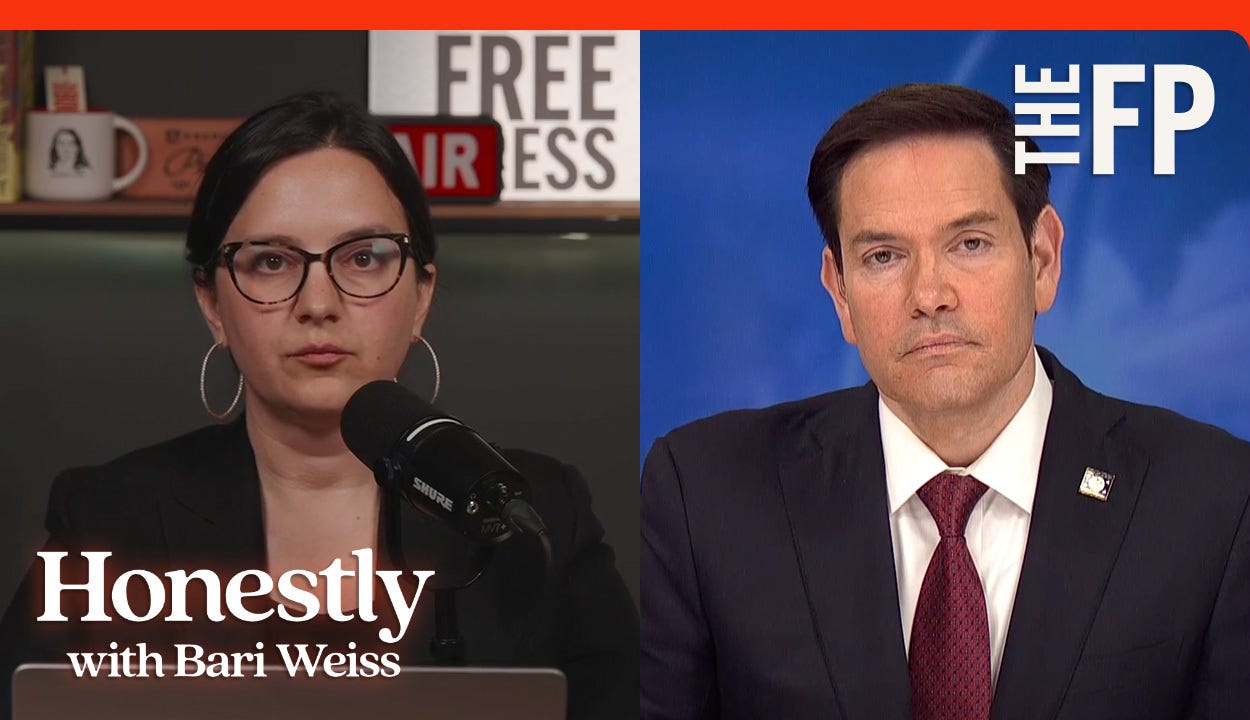

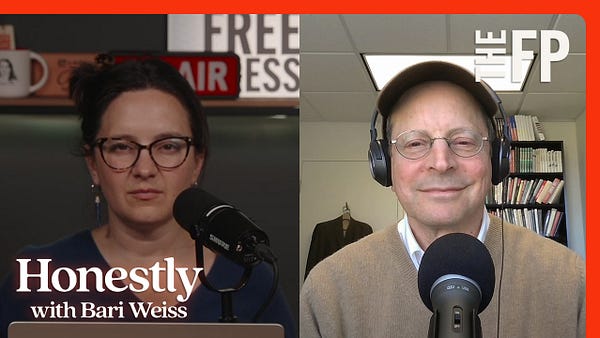

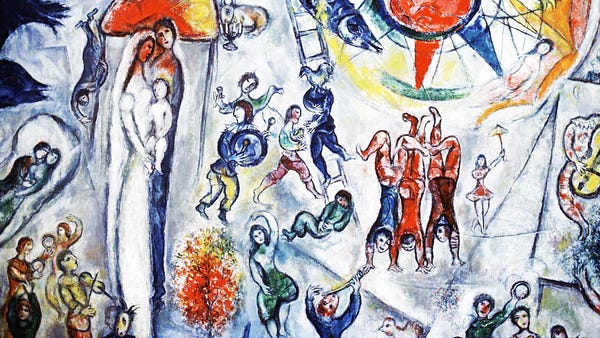

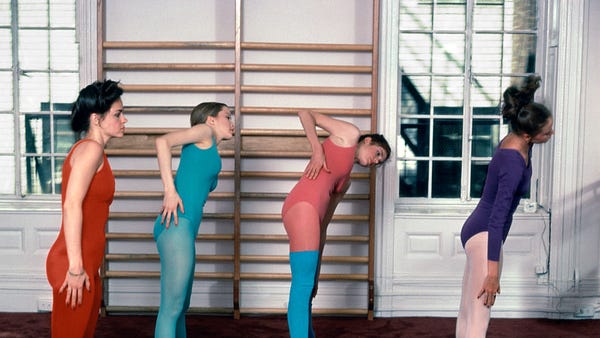

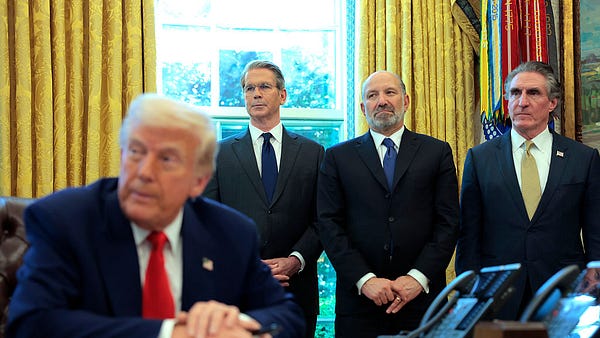

It was telling that Sandberg couldn’t bring herself to say the United States with all of its faulted is the greatest country in the world, or at least was. I think her quote when talking about what are kids are learning in school about this country is that it is evil, racist etc, was “I am sure there are some good things about the US.”
That comment was unbelievable and shows how out of touch and indoctrinated she has been by the left.
“…the very people they thought were their friends are proving themselves to be just the opposite. “. Connect the dots, complete the circuit, you’re almost there! The people you thought were your enemies are your friends, actually. And were never your enemies. They are, of course, normal Americans.
All the people that hate you, Ms Sandburg, you fully supported when normal Americans didn’t. BLM and TDS and Women’s March and all that.
PS - rape has not been legal in war since the concept of war crimes arose. Even the Nazis executed soldiers for rape.